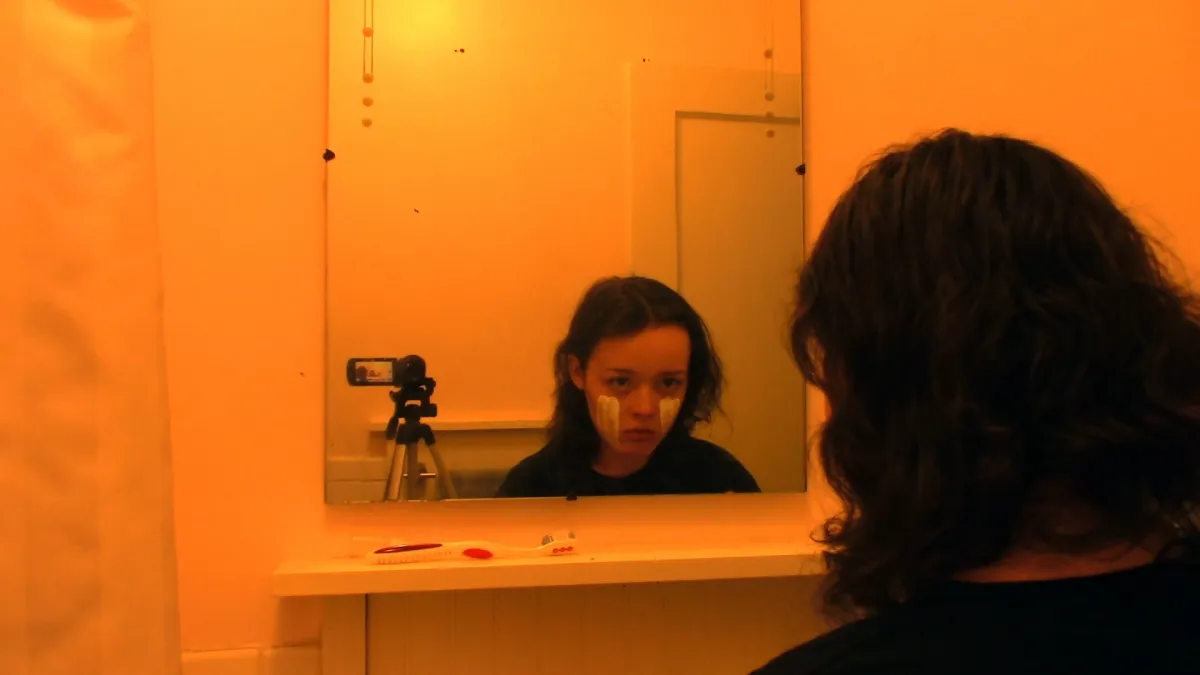A Better Son or Daughter: We're All Going To the World's Fair (dir. Jane Schoenbrun, 2021)
And you tell her to give in to the demons that possess her.

My mother used to exorcise me when I was little. It wasn’t as weird as it sounds; there was a brief Charismatic phase that passed through our otherwise Catholic church, people speaking in tongues, laying on hands, and so when I was being difficult, or having a hard time, she’d put her hand on my head and pray for demons to leave my body.
A demon is a metaphor. Depressive spells or temper tantrums aren’t “demons;” they’re just moods, and when you’re young, and your brain isn’t finished developing, a mood can overpower the rational centers of your brain. “Demon” is a name for being overpowered. It’s a way to think about being out of your own control.
I was in first grade, and first-graders don’t think in metaphors. I got used to thinking of my body as something permeable; God could pass through it, in Communion or prayer, and demons could pass through it, if some fault line in my personality cracked open and allowed evil to seep in. I got used to believing something else had been responsible for my worst actions, and (worse) that I couldn’t always tell who was in control.
All of my worst nightmares — the real, deep, sleep-paralysis shit — are about possession. They’re about having someone else inside my body, someone else controlling my body, who is not me. I’m conscious, and I can feel everything I’m doing, but I can’t make decisions. My body does everything I don’t want, and I can’t stop.
What I didn’t know, at the time, was that demonic possession is also a fairly common metaphor for transness. Think about the deep, masculine voice coming out of little-girl Reagan in The Exorcist, or the Hereditary demon and its quest to abandon a female body for a male one.
We Are All Going To The World’s Fair is not one of those teen-possession movies. It looks like one, from a far distance, but you learn pretty quickly that it’s going somewhere else. In fact, World’s Fair is not even really a horror movie; it is, as director Jane Schoenbrun says, a movie about horror movies and horror fandom. It’s about a kid who has learned to use the language of horror to describe and define her life.
The idea that I don’t control my body, or that my body and my mind are two different entities, is also a pretty obvious metaphor. This metaphor is not about good or bad behavior; it’s about identity. It looks the same as the other metaphor, though, because queer people are conditioned to view our identities as a form of bad behavior. Being ourselves feels like losing control.